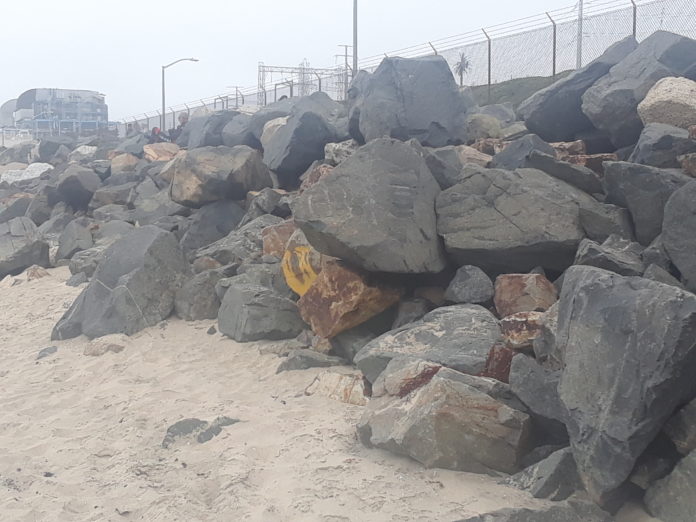
Photo Credit: Global Diaspora News (www.GlobalDiasporaNews.com).
USCRI sat down with Alejita Rodriguez, Director of USCRI’s shelter Rinconcito del Sol (a little corner of sunshine) this Women’s History Month to discuss the shelter, her career, and the importance of uplifting girls.
Rinconcito del Sol is a shelter for unaccompanied girls between the ages of 13-17. At the shelter, they receive nutritious meals, an education, medical care and mental health services, legal support, and recreational opportunities. They stay under our care until their claims are resolved under U.S. immigration law or they are released to parents, adult family members, or other responsible adults.
Q: What led you to your current role, and could you describe a little bit about what you do at USCRI?
Alejita: At USCRI Rinconcito del Sol I’m the Shelter Director. What led me to my current role is the desire to have an opportunity to uplift children, in particular girls. I was in awe of the resiliency of immigrant children and the strength and courage they showed as they made their decision to travel to the United States for a better life. I knew that was not an easy journey for the children, they encounter so many obstacles and challenges in their home country and on their journey to the United States. I was looking for an opportunity where I could help children heal and find the confidence they needed to be successful in the United States.
Q: What were you doing before you worked at USCRI; is this something that you’ve always been interested in doing?
I’ve always worked with vulnerable populations and vulnerable adolescents in particular. For over 20 years I worked in the child welfare system particularly with children in foster care, always teenagers. I enjoyed working with teenagers who were outspoken, driven and looking for an outlet to have a voice. I really believed in children sharing their voice and developing the skills and confidence to advocate for themselves. In addition, I assisted older teenagers with building life skills and preparing for their transition from foster care.
Q: What’s the typical day like in your role?
Alejita: The shelter is fast paced and busy, but I love it because it really encompasses so many facets and requires a whole team effort. So a typical day could be addressing any high-risk cases, meaning working through and problem solving medical or crisis situations or processing safety concerns where a child, for example, received some bad news in regards to their inability to reunite with their family, which they were really hoping for. We’re also always greeting the new children to our care. We have children that arrive at our shelter on a daily basis and we really believe in providing a trauma-informed approach, by being welcoming, positive and greeting them when they enter the door, making sure they understand this is a safe place. When children arrive, they’re so confused and they have so much worry and anxiety regarding the unknown, so we try to make sure they understand that they’re in a safe place. Our programming requires community resource connections to ensure a focus on youth development. That process includes looking ahead in terms of what activities we have planned for the month, how can we work together to provide children normalcy and acculturation activities, and how we can get them connected to the community during their stay.
Q: How many children do you typically have at one time in the shelter?
Alejita: Our shelter capacity is 100 and we have been averaging a good 94 to 97 on a daily basis. It’s been pretty busy lately.
Q: You touched on this, but what’s the purpose of the shelters?
Alejita: The purpose of the shelter is to provide an immediate, safe, and secure place for the children to be. The case management team, the clinical team, and the medical team really collaborate to ensure the child’s needs are met so the child is ready to be safely reunited with a family member as soon as we’ve made that determination.
Q: Can you talk a little more about where these children are coming from and who unaccompanied children are?
Alejita: We have a very diverse population here lately which we love. Typically, the children are coming from Central America, but lately we have seen children from everywhere and it’s just been amazing. So in addition to children from Guatemala, Nicaragua, Honduras, El Savador, Cuba, and the Dominican Republic, we have also served children from Haiti, Angola Africa, Romania and Vietnam.
These children are seeking a better life. They’re leaving their home country for safety reasons. They’re very focused on integrating successfully in the United States and getting an education first and foremost.
Q: Do you ever run into challenges with such a diverse population such as language barriers?
Alejita: Yes, language barriers are challenging. Our team members speak Spanish, Creole, Portuguese, Arabic and English. We also have on site interpreters who help, provided through ORR, so we have some assistance there. We think on our feet, we immediately created note cards so we know important words that we can quickly communicate. The children appreciate that we’re learning their language just as they’re learning English.
We also have challenges with the food because we’re working with so many children from different regions. They have different tastes, and so we honor their voice and ask them, what do they typically eat in their home country and what is their favorite food, and from there we can incorporate a balance of American traditional meals and meals typically eaten in their home country.
Q: Since it’s Women’s History Month, how does shelter support girls’ needs in particular?
Alejita: We do this every month, but this month we have really been uplifting the girls and teaching them about important women here in the United States and in their home country.
This month, we’ve been intent on giving them opportunities to feel lots of pride in being a girl and a future woman in this country. The children hosted a Woman’s Day presentation, and the children represented an important figure by dressing like them and sharing key historical facts with their peers. We learned a lot about resiliency, courage and how the historical figure made an impact for women across the world. This allowed the children to be inclusive and uplift each other and have something to work towards.
Women’s History Month to me is an opportunity to honor women who have made great achievements. Through their triumphs it allows me and others to have the confidence and courage to know we too can make a difference in someone’s life.
-Alejita Rodriguez, Shelter Director, Rinconcito del Sol
Q: What are the challenges the girls encounter in their transition?
Alejita: Children encounter poverty, violence, and abuse in their home country. They have a lot to overcome once they have safely arrived, and while at the shelter we quickly and safely address trauma and identify trauma symptoms to help them then identify the appropriate interventions. Our clinicians introduce these tools in order for the children to learn to utilize these on their own, whether it be mindfulness, or meditation, or reading, or journaling or ongoing clinical services in their community. Self-esteem and character building are part of our interventions aimed at building the children’s self-confidence and self-advocacy skills.
Q: You mentioned that some of them stay is little as a month, what’s the longer end of how long they stay?
Alejita: It depends on the child’s needs. For example, a child requiring specialty medical care, surgery, and post op services may remain longer and that is an extreme case. Ensuring safe reunification is a top priority and in cases requiring further assessment the child can remain in our care until the appropriate placement is achieved. There are some children that will move on to what’s called long-term foster care, and for them they will be connected to a family so they can integrate into the community while attending a community school, participate in community activities all while they work on learning the skills necessary to be successful.
Q: You mentioned integrating into schools in the community. Does your shelter offer classes while the children are there?
Alejita: Yes, the children go to school every day here from eight am to three pm. We have 5 classrooms and six teachers. The children receive an educational assessment when they arrive, and then they immediately get introduced to the curriculum that they will receive in traditional community based schools, which is amazing. So they go to math, science, English, and social studies as well as PE and technology class. Just like a traditional middle school or high school, they switch to different classes every hour. We try to make sure they’re aware of what school is going to be like once they transition with their family.
In June, we have a moving on celebration which mirrors the traditional graduation process so they can learn about these important milestones and how May/June is typically a busy month for parents and families in the United States as they celebrate the academic success of their children.
Q: What advice would you give someone who wants to go into this kind of work?
Alejita: Volunteer with the particular group, be that children, teenagers, adults, or families to find what they are most passionate about. Form their they can explore educational or career options in the community. They should be ready to give back, ready to share and ready to uplift because it’s a truly rewarding opportunity.
Q: What does Women’s History Month mean to you?
Alejita: Women’s History Month to me is an opportunity to honor women who have made great achievements. Through their triumphs it allows me and others to have the confidence and courage to know we too can make a difference in someone’s life.
Other Women’s History Month spotlights: Dylanna Grasinger, Hila Moss, AnnaMarie Bena
USCRI, founded in 1911, is a non-governmental, not-for-profit international organization committed to working on behalf of refugees and immigrants and their transition to a dignified life.
The post Women’s History Month Spotlight: Alejita Rodriguez appeared first on USCRI.
Source of original article: U.S. Committee for Refugees and Immigrants (refugees.org).
The content of this article does not necessarily reflect the views or opinion of Global Diaspora News (www.GlobalDiasporaNews.com).
To submit your press release: (https://www.GlobalDiasporaNews.com/pr).
To advertise on Global Diaspora News: (www.GlobalDiasporaNews.com/ads).
Sign up to Global Diaspora News newsletter (https://www.GlobalDiasporaNews.com/newsletter/) to start receiving updates and opportunities directly in your email inbox for free.






























